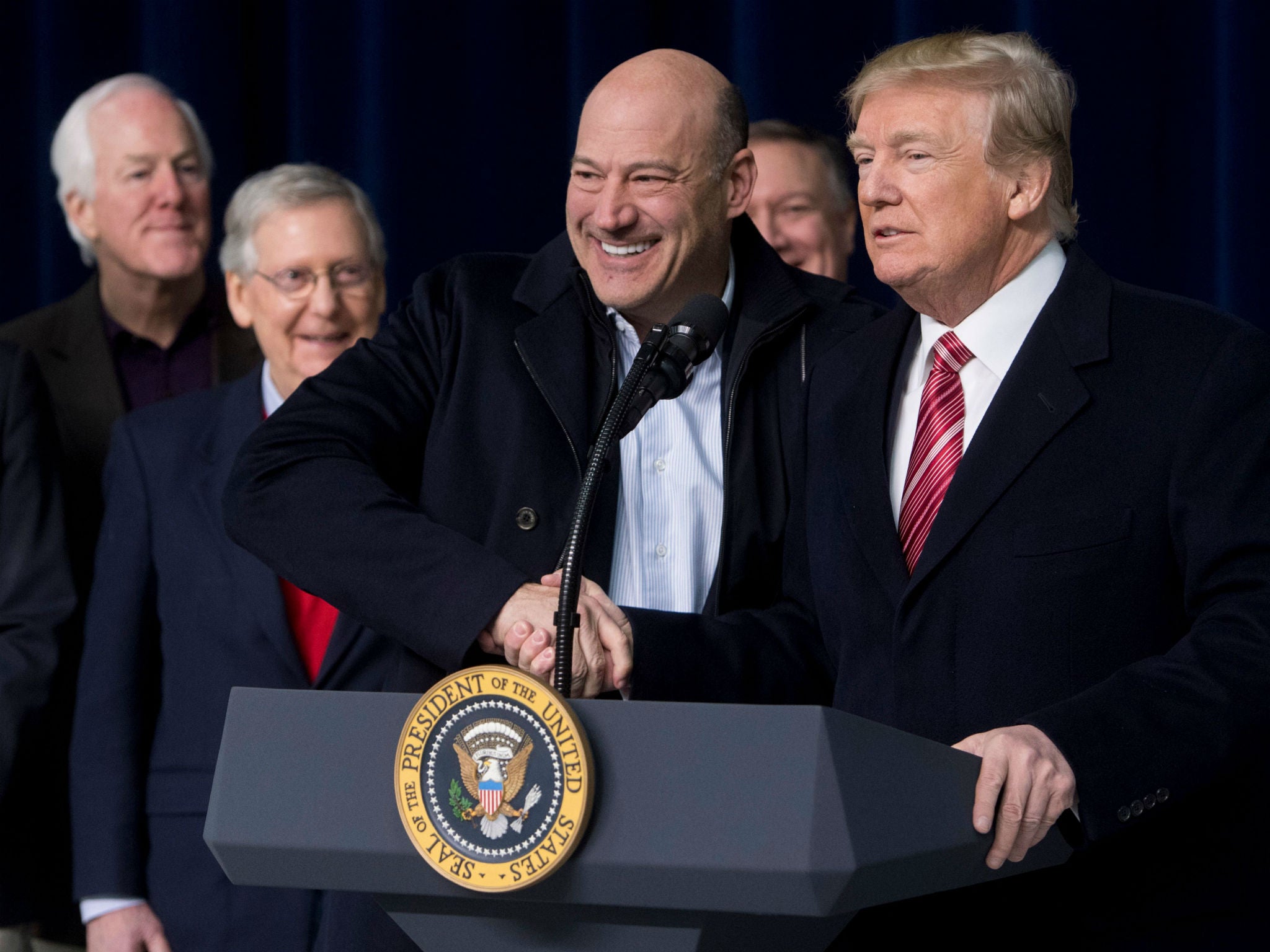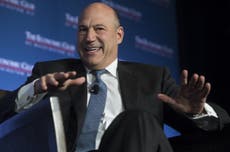Donald Trump is going about trade wars in an unpleasant way – but he has a point
In some ways Europe is more protectionist than the US, and China is vastly so


Trade wars are never good. There are not many things we can be sure about in economics, but that is one. I cannot think of a single example where a trade war has resulted in either side gaining in anything other than the very short term, and usually not even that.
The question that follows is whether the world is heading into one, or whether the spat between the Trump administration and the European Commission is just that – one of the standard spats that frequently occur in trade negotiations – or something more troubling.
It is probably the former. This is the way the US President negotiates – sound off, create some headlines and then seek a deal. But the departure of his top economic adviser, Gary Cohn, gives a signal that his administration might miscalculate and trigger a round of measure and counter-measure that will end up seriously damaging world trade.
Viewed in isolation, a threat of import tariffs on steel and aluminium by the US and retaliation against bourbon, orange juice and peanut butter by the EU has an almost comical tone. But while we in Europe can rub along without Maker’s Mark, I don’t think we in the UK would like to find a larger duty slapped on scotch or gin. Tit for tat is a silly game.
The financial markets, which have to make instant decisions on the significance of political events, did not like the prospect of a trade war at all. Their immediate reaction to the Cohn news was to open 1 per cent lower on Wednesday. The markets are saying that this trade approach is likely to damage the US economy. That, more than anything else, is likely to push the US negotiators towards some kind of accommodation with its trading partners, for it is language Donald Trump understands.
But I think it is important to understand the aims of the administration. Figures just out show that the US trade deficit hit a nine-year high in January, and the US has some reason to feel that trade is sometimes rigged against it.
For example, there is the simple matter of duties on cars: a 2.5 per cent one on European cars imported into the US, but a 10 per cent one on US cars imported into Europe. Germany last year had a current account surplus equivalent to 8 per cent of GDP, a level is bound to destabilise its relations with the rest of the world. Or look at China, delighted to export its stuff to the US, but putting up various barriers on US imports.
There is also a cultural dimension and I’m not sure what you can do about this. Go into any upmarket food store in the US, say a Whole Foods, and you will find lots of French wines on sale. Go into a French supermarket and you will struggle to find many Italian and Spanish wines, let alone American ones.
Indeed, that Europe should target things like cranberry juice and peanut butter as US imports to hit, highlights how limited is the range of goods that the US sells in Europe. What it sells are mainly services. Note that the commission is not suggesting that Europeans should pay a levy if they use the Google search engine or log onto Facebook.
The President is going about this in an unpleasant, aggressive and possibly self-defeating way. But he has a point. In some ways Europe is more protectionist than the US, and China is vastly so.
The thing that protects us all from a trade war is the experience of history. There is a famous cobweb diagram created by the US economist Charles Kindleberger in his book, The World in Depression, 1929-1939. It shows how world trade declined relentlessly month by month between 1929 and 1933, so that by the beginning of 1933 it was one-third of the level it was at the beginning of 1929. That collapse was largely caused by restrictive trade policies, including the infamous Smoot-Hawley Tariff Act of 1930, which led pretty directly to the Depression and US unemployment of more than 20 per cent, and indirectly to the rise of Adolf Hitler in Germany.
There is no need to be apocalyptic. This row will almost certainly be settled in a more or less acceptable way. Almost certainly... but not absolutely certainly, which is why we are right to worry.




Join our commenting forum
Join thought-provoking conversations, follow other Independent readers and see their replies